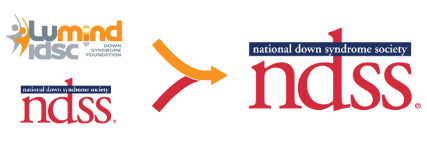“I want to enjoy my life for a long time. I want to grow old just like everyone else.”
These two sentences, spoken by a 37-year old man with Down syndrome, encapsulate the purpose of our mission here at LuMind IDSC. His name is Rohan, and he recently spoke these words at a small event convened by LuMind IDSC to discuss the topic of Down syndrome-associated Alzheimer’s disease. The event brought together parents, self-advocates, clinicians, local community leaders, and policymakers to learn more about the progress we have made, the work we still need to do, and the hope we have for the future.
Over the last couple of years, the Food and Drug Administration has approved two disease-modifying Alzheimer’s drugs – Aduhelm and Leqembi, and approval for a similar drug called Donanemab is expected later this month or next. This is great news in the fight against Alzheimer’s.
Here at LuMind IDSC, we are tackling some of the barriers that currently prevent people like Rohan from gaining access to these new drugs, and ultimately, living longer. Our relentless focus on research and policy work has specifically been targeting the issue of clinical trial exclusion, and the specific needs of the Down syndrome population for obtaining any of the recently approved drugs.
As of today, our loved ones with Down syndrome have been left out of 30 clinical trials with the three most promising Alzheimer’s drugs. More than 18,000 participants have been included in studies over the last 13 years, yet no one with Down syndrome was included in these trials. Considering 90% of adults with Down syndrome receive an Alzheimer’s diagnosis in their lifetime, we feel this exclusion is both tragic and unacceptable. This is why LuMind IDSC is devoting significant time and energy to continuing our efforts for equitable treatment access in 2024. Here are our commitments for the year ahead:
- Communication to Families: Knowledge is power. LuMind IDSC has made it a priority to keep the community informed on the latest information about the recent drug approvals; what we know and what we don’t know about these drugs. In 2024, we will continue to keep you up-to-date on newly approved drugs, ongoing safety measures, and additional opportunities to participate in research. You can read our statements to the community about each drug and view recent articles about inequitable access using the following links:
Statement about Aduhelm
Statement about Leqembi
Overview of current challenges for access to Alzheimer’s treatments
“People with Down syndrome Deserve Access to Alzheimer’s Treatment” – Boston Globe
“Down syndrome Families’ Fight for Access to Alzheimer’s Trials, Treatments” – Reuters - Fighting for Drug Accessibility: Over the past year, we realized that our population was automatically excluded from gaining access to the newly approved drugs. To help enact change, we brought together a panel of experts to provide adapted language to be more inclusionary. Our work is available on our website. In 2024, we will continue to work on correcting this issue, turning our efforts towards working with the medical community to ensure that when the drugs are deemed safe, doctors can prescribe them to people with Down syndrome. You can also join the fight for equitable treatment access by signing an online petition at MedEquity4DS.org.
- Need for Safety Trials: Because of the lack of safety data for the newly approved Alzheimer’s drugs, medical experts (and our team at LuMind IDSC) do NOT recommend people with Down syndrome be prescribed any of the newly approved anti-amyloid drugs, unless they are part of a clinical safety trial. Unfortunately, no clinical trials for Down syndrome have been launched yet. But that is another area where LuMind IDSC intends to lead in 2024. We are actively advocating with pharmaceutical companies to conduct safety trials in our population with these drugs and will continue this work throughout 2024.
I cannot stress enough the importance of participating in research studies – whether in surveys, observational studies, or clinical trials for Alzheimer’s disease or other conditions – each research project provides critical information and insight into how to improve the quality of life for people with Down syndrome. See opportunities to get involved with research on our website.
We are excited because, step-by-step, our community is inching closer to equitable access to Alzheimer’s treatments and diagnosis for the Down syndrome population. But this process of breaking down barriers doesn’t stop with Alzheimer’s therapies. All the groundwork we are doing today for Alzheimer’s disease will open the door for future tools, medicines, and treatment options for other co-occurring conditions affecting people with Down syndrome. For example, major advances have been made in using blood as a diagnostic tool for Alzheimer’s instead of brain imaging. We plan to bring the Down syndrome perspective to ongoing research, with the hope that people with Down syndrome are not left out of the progress and advancements made in diagnostic blood tests because we want the blood tests to work for people with Down syndrome too.
Ultimately, whether our loved ones with Down syndrome are 7, 37, or 67, we want them to have access to every emerging treatment available for any condition so that people like Rohan can continue to work, be active, and live independently.
I am confident that by working together, we will continue to break down barriers and pave the way to a brighter future for all of our loved ones with Down syndrome. I look forward to what’s to come in 2024!
Sincerely,
Hampus Hillerstrom
CEO, LuMind IDSC Foundation
We will be hosting a webinar to provide information on the current progress made regarding Alzheimer’s disease and prevention. Stay tuned for more information soon.
